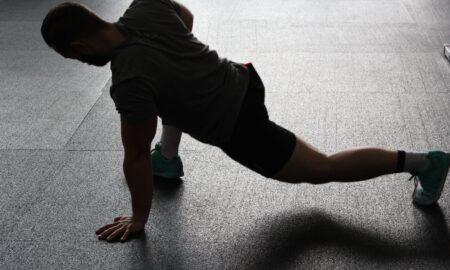The focus of the annual meeting of the International Society of Sports Nutrition is the lectures given by highly qualified experts on sports nutrition and athletic performance. I’ll report on some of those lectures from the 2008 meeting in a separate IRON MAN feature. The conference also produced a number of studies known as “poster presentations,” which are provided as abstracts. They haven’t yet been published in any peer-reviewed scientific journal, but they offer a view of some interesting nutrition trends, especially related to sports participation and exercise. Many of them, however, were sponsored by companies that stand to gain financially from a favorable study of their products. There’s nothing unethical about that; after all, someone has to foot the bill for the often considerable expense of such research. Unfortunately, however, they almost never compare products. The usual comparison involves the company product and a placebo.
I’ve opted to not discuss any of the individual-product studies. Here are summaries of a few of the other interesting poster studies presented at the ISSN conference:
• The effects of supplemental beta-alanine were examined in 18 collegiate wrestlers during the competitive season. For eight weeks the athletes took four grams a day of beta-alanine. Before and after supplementation they underwent various performance tests, such as a 400-meter sprint and a 90-degree flexed-arm hang to exhaustion—doesn’t the CIA use that on suspected terrorists? After eight weeks the athletes had significant improvement in both tests, which the authors attribute to beta-alanine use.
• While various strategies have been employed to spur physical recovery after training, not much is offered in the way of mental regeneration. Intense training involves a high level of mental stimulation brought on by the exercise-induced release of various hormones and brain chemicals. In this study, the authors looked at the effects of L-theanine, an amino acid found in tea. Theanine is known to provide relaxation effects and to decrease the experience of mental stress.
Fourteen healthy male subjects, average age 24, engaged in gradually increasing high-intensity stationary cycling. A half hour after the exercise began, they drank a beverage that contained either 50 or 200 milligrams of theanine or a placebo. The theanine led to more rapid mental regeneration, with the effective dose being 50 milligrams; 200 milligrams appeared to provide no additional benefits.
• It’s common practice to take creatine with large amounts of simple sugars. That’s because studies show that taking creatine with sugar encourages creatine uptake into muscle, as the sugar spurs insulin release, and the insulin pushes the creatine, not the sugar, into muscle. What if you want to maximize creatine uptake but don’t want to get an overdose of simple sugar?
Past studies show that an herb called Russian tarragon seems to lower blood sugar, as does insulin, which implies that tarragon may mimic the effects of insulin in that regard. The subjects got both creatine and tarragon, and then the researchers measured whether creatine disappeared from the blood and, presumably, entered muscle.
Eleven male subjects, average age 20, took a single oral dose of creatine monohydrate at 60 milligrams per kilogram of bodyweight, or just over a teaspoonful for a 200-pound man. Fifteen minutes before that they took either a placebo or two 500-milligram capsules of a standardized extract of Russian tarragon. There was a significant reduction of creatine blood levels at 60, 90 and 120 minutes after tarragon intake; the placebo had no effect. The implication is that taking tarragon shortly before taking creatine boosts creatine uptake, and without a sugar rush.
• A study of beta-alanine found that it worked well when combined with high-intensity interval training, a form of aerobics. Forty-six college-aged men were placed in one of three groups:
1) Placebo
2) Beta-alanine—1.5 grams, along with 15 grams of flavored dextrose to match the placebo
3) Control group—no supplement or placebo
Groups 1 and 2 got one packet of the placebo or one of the beta-alanine four times a day—total of six grams daily—for the first 21 days, followed by twice daily—three grams—for the next 21 days. Those in the beta-alanine group improved in maximal peak oxygen intake more than those in the placebo group. They also showed more improvement in total work done than the placebo group.
There weren’t any changes in body composition. The authors suggest that the combination of high-intensity interval training and beta-alanine works because of the improvement in aerobic capacity from the interval training, along with improved muscle buffering resulting from an increase in muscle carnosine through beta-alanine supplementation.
• Whether growth hormone injections help increase muscle size and strength when taken apart from other anabolic drugs is still a matter of intense debate. Increasing growth hormone naturally, through exercise and diet, however, is thought to play a major role in gaining muscle mass and strength. Certain nutrients are supposed to boost GH release. While most of them are amino acids, such as arginine, other nutrients may play a role. Among them is a form of choline called alpha-glycerylphosphorylcholine, or APC.
A study examined the role of APC supplementation in encouraging GH release when used prior to weight training. It had a randomized, placebo-controlled, crossover design, the gold standard of clinical research. Seven men with at least two years of training experience took either 600 milligrams of APC or a placebo 90 minutes before completing six sets of 10 reps of Smith-machine squats, using a weight equal to 70 percent of their one-rep maximum. They then underwent various tests, followed by three sets of bench press throws, to test peak force, power and rate of force development.
Those taking the APC supplement experienced a 44-fold increase in peak GH, compared to an increase of only 2.6-fold in those taking the placebo, and peak bench press force was 14 percent greater with APC than with the placebo. Thus, APC appears to be an effective GH-releasing supplement when used about 90 minutes prior to training at a dose of 600 milligrams.
• In my Bodybuilding Pharmacology column, I recently reported on a study involving nearly 2,000 respondents who participated in an Internet-based survey about steroid drug use. The study attracted media attention because it showed that the majority of anabolic drug users weren’t athletes or young people but instead professional people in their 30s who weren’t interested in athletics or bodybuilding competition. Those respondents used steroids to improve their appearance. Also participating in the survey were 37 women, and their responses were reported in a poster study.
The women, like the male respondents, were highly educated professionals; they tended to hold more advanced degrees than their male counterparts. The average age was 30, and they weren’t active in organized sports. Their primary motivation was to increase muscle mass, strength and physical attractiveness, as well as to lose bodyfat. The women differed from the men in one respect, however. More of them were involved in bodybuilding competition. The average female in the survey began using steroids at 29, four to five years after starting weight training.
The authors note that the idea that professional athletes and at-risk youth are the major users of anabolic drugs is simply wrong. I would also suggest that the women who responded to the survey were likely bodybuilders, as shown by their eagerness to add muscle. In most women that concept still instills fears that they will “turn into men.” Women who do resort to long-term steroid use should know that certain physical changes may occur that are permanent and will stay with them for life, including changes to sexual organs, deeper voice, hair loss and breast reduction. IM




















You must be logged in to post a comment Login